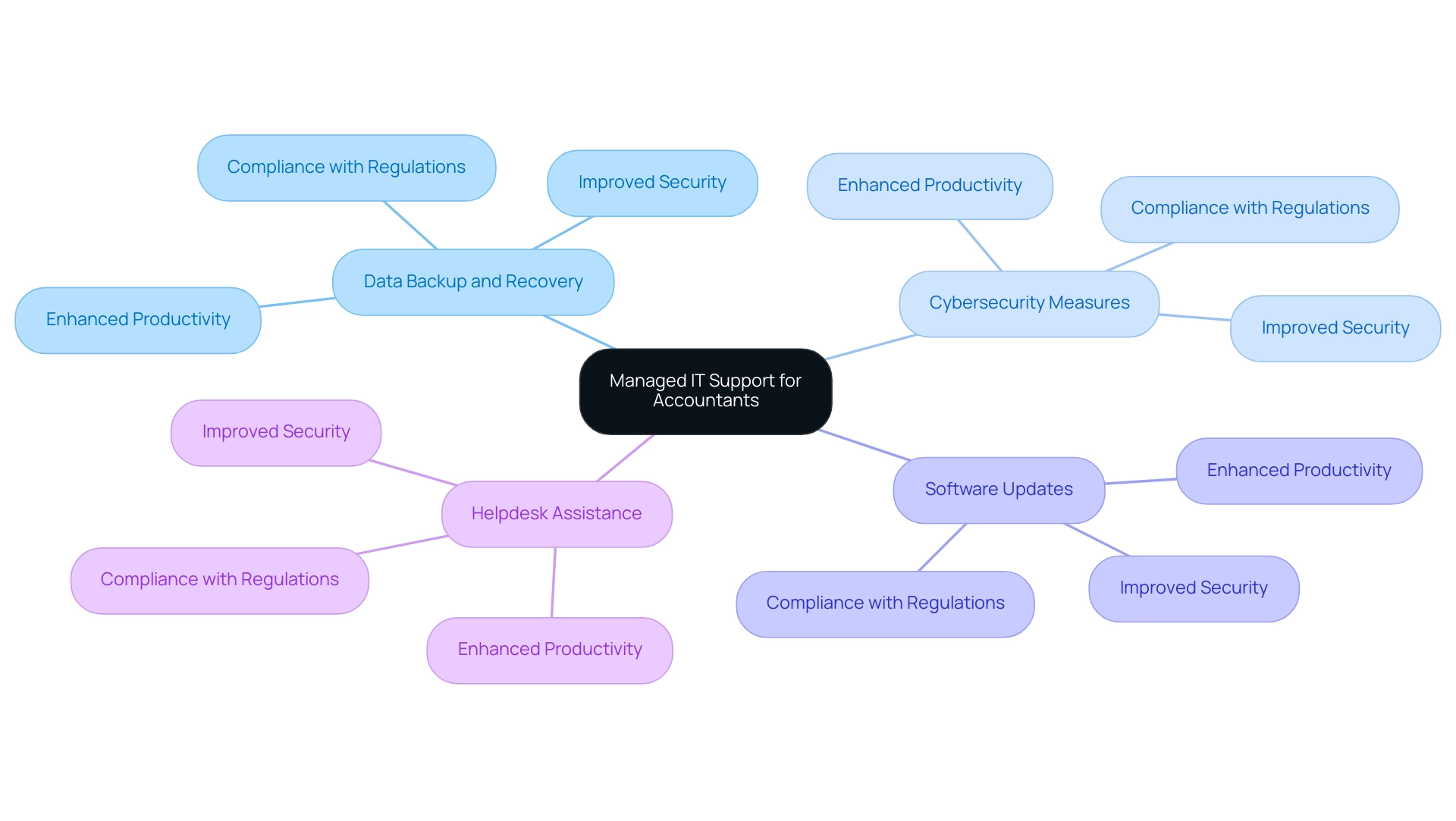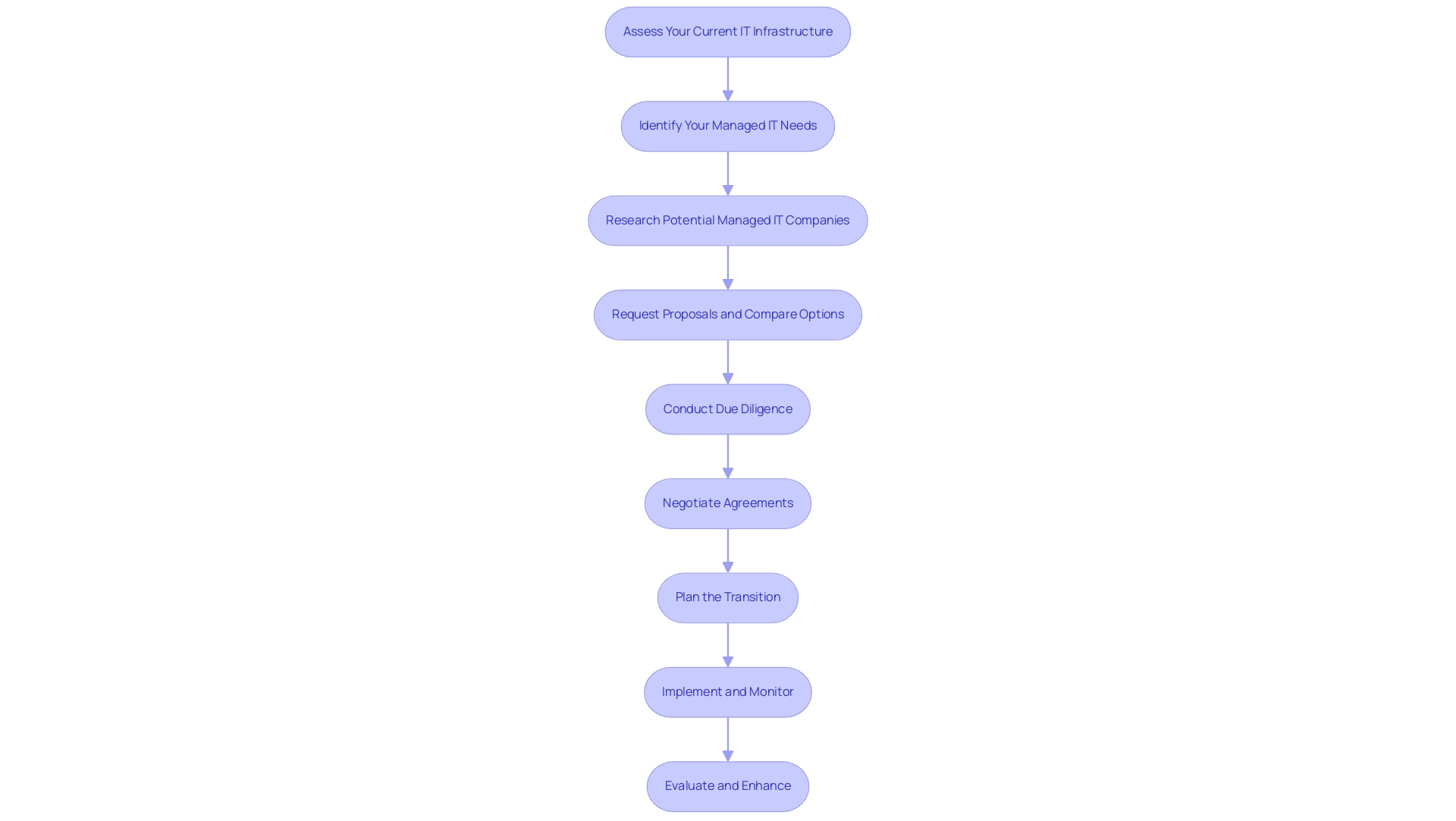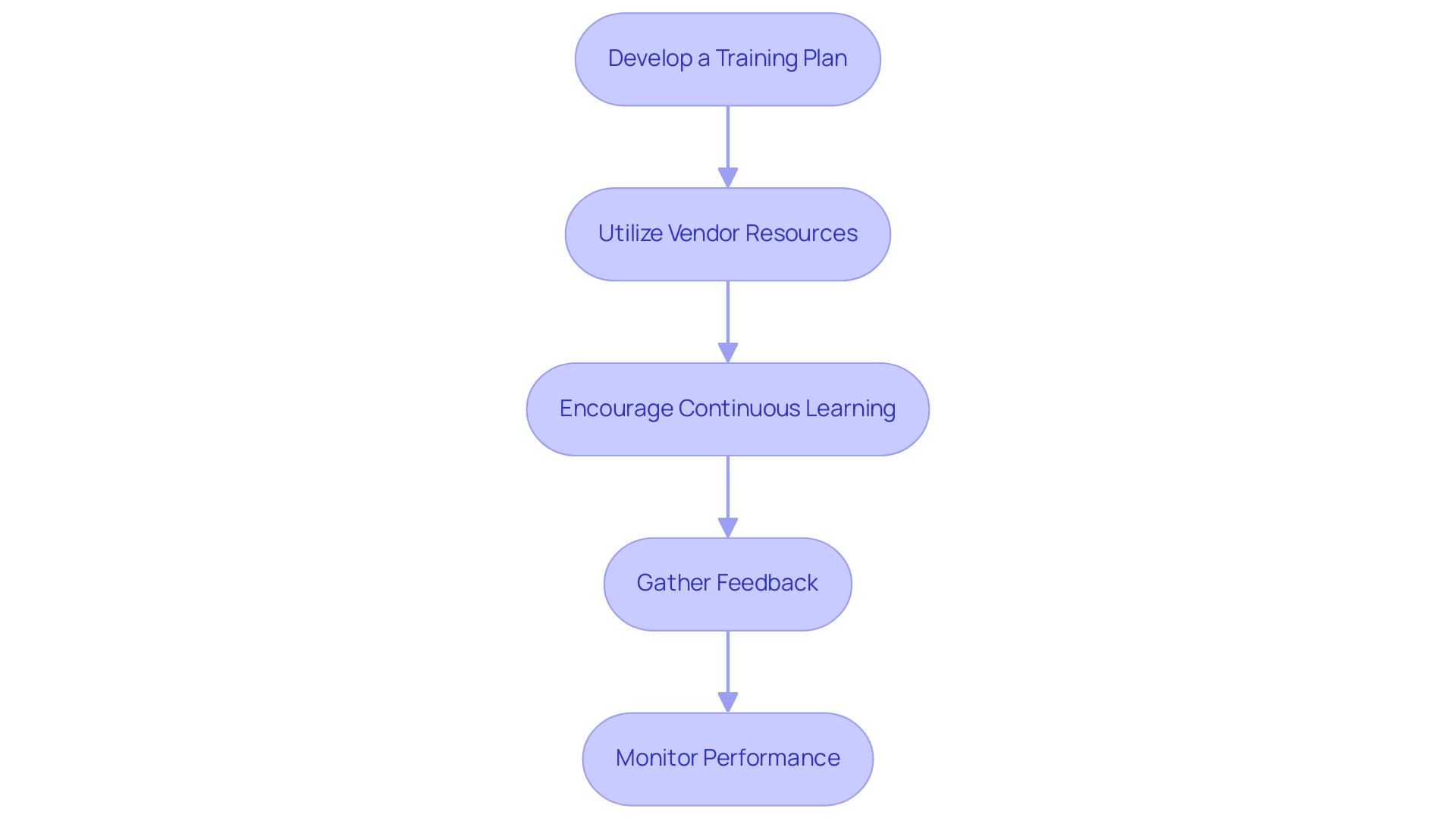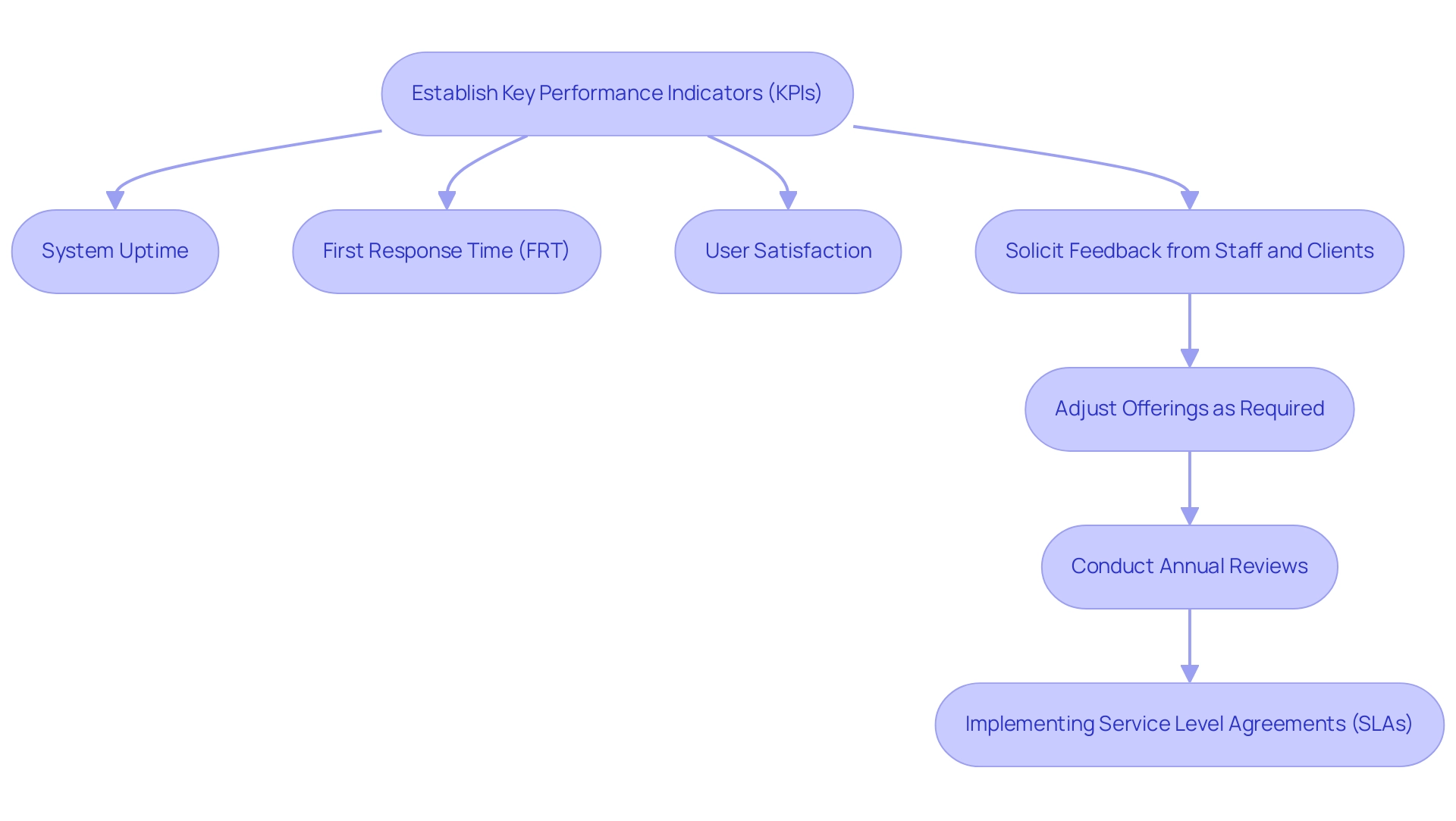Introduction
In the competitive landscape of accounting, firms are increasingly recognizing the importance of robust IT support systems to enhance their operations. Managed IT support offers a strategic solution, allowing accountants to outsource their technology needs to specialized providers who ensure that their IT infrastructure is secure, compliant, and efficient. This article delves into the various aspects of managed IT support tailored specifically for accounting practices, from the initial assessment of IT needs to the implementation of new technologies and ongoing training for staff.
By understanding how to effectively leverage these services, accounting firms can not only streamline their operations but also significantly improve client satisfaction and operational efficiency.
Understanding Managed IT Support for Accountants
Managed IT support denotes the practice of outsourcing IT solutions to a specialized provider that assumes responsibility for managing, monitoring, and maintaining an organization’s IT infrastructure. For accountants, this means having access to a range of solutions that provide managed IT support for accountants, designed to enhance productivity, security, and compliance with industry regulations. Clients have commended STS Consulting Group for their exceptional assistance, stating,
'From start to finish, they solved every problem and helped us achieve our goals in the most professional way possible.'
Services provided encompass:
- Data backup and recovery
- Cybersecurity measures
- Software updates
- Helpdesk assistance
One client remarked,
'Using STS Consulting Group helped me save weeks of work. Their delightful level of quality and assistance is consistent and unique; by utilizing managed IT support for accountants, accounting firms can concentrate on their core strengths while guaranteeing their technology environment is strong and secure.'
Another satisfied client noted,
'The expertise and responsiveness of STS Consulting Group have transformed our IT operations, allowing us to serve our clients better.'
This method not only lessens the load on internal IT personnel but also provides managed IT support for accountants, offering access to the latest technological solutions customized to the specific requirements of the accounting field, ultimately resulting in enhanced client support and operational efficiency.

Step-by-Step Implementation of Managed IT Support
Implementing supervised IT support for your accounting firm involves several key steps:
-
Assess Your Current IT Infrastructure: Begin by evaluating your existing IT systems, identifying strengths and weaknesses. This assessment will assist in identifying what solutions you require from managed IT support for accountants.
-
Identify Your Managed IT Needs: Based on the assessment, outline the specific offerings required, such as cloud storage, cybersecurity, or compliance solutions. Tailor these needs to the unique requirements of your accounting practice.
-
Research Potential Managed IT Companies: Look for firms with experience in the accounting sector. Consider their offerings, reputation, and customer reviews to ensure they align with your firm's needs.
-
Request Proposals and Compare Options: Reach out to potential vendors to request proposals that outline their offerings, pricing, and support alternatives. Compare these proposals carefully, focusing on how well they meet your identified needs.
-
Conduct Due Diligence: Investigate the shortlisted suppliers further by checking their certifications, client testimonials, and case studies. Ensure they possess a strong history in providing managed IT support for accountants.
-
Negotiate Agreements: After you’ve chosen a vendor, discuss the conditions of the agreement, including performance level commitments (SLAs), pricing, and assistance availability.
-
Plan the Transition: Collaborate with the selected provider to develop a comprehensive transition strategy that specifies how your firm will shift to the new IT assistance framework, including timelines and responsibilities.
-
Implement and Monitor: Execute the transition plan while closely monitoring the implementation process. Ensure that all systems are functioning correctly and that staff are trained on any new technologies.
-
Evaluate and Enhance: Following implementation, routinely assess the provided IT assistance services to ensure they remain aligned with your firm's requirements. Make adjustments as necessary to optimize performance and efficiency.

Training Staff for New Technologies
Once organized IT assistance is established, it is essential to educate your personnel on the new technologies and procedures. Here are steps to ensure effective training:
-
Develop a Training Plan: Create a comprehensive training plan that outlines objectives, topics to be covered, and the format of training sessions (e.g., workshops, online courses).
-
Utilize Vendor Resources: Leverage resources offered by your administered IT service provider, such as documentation, webinars, and training sessions tailored to your firm’s needs.
-
Incorporate Hands-On Training: Allow staff to practice using new systems in a controlled environment. Hands-on training helps reinforce learning and builds confidence.
-
Encourage Continuous Learning: Promote a culture of continuous learning by providing access to ongoing training resources and encouraging staff to stay informed about new technologies.
-
Gather Feedback: After training sessions, solicit feedback from staff to identify areas for improvement and adjust future training accordingly.
-
Monitor Performance: Track how well staff are adapting to the new systems and offer additional assistance where necessary to ensure a smooth transition.

Evaluating the Effectiveness of Managed IT Support
To guarantee the effectiveness of your IT support, it is essential to implement a systematic approach for performance evaluation:
- Establish Key Performance Indicators (KPIs): Begin by defining KPIs that align with your firm’s strategic objectives. Consider metrics such as system uptime, first response time (FRT), and user satisfaction levels, as these will serve as benchmarks for success. Emphasizing FRT is essential, as it gauges the time required for a desk agent to reply to a ticket, directly affecting user satisfaction.
-
Regularly Review Performance Reports: Work closely with your managed IT provider to create regular performance reports that reflect delivery against the established KPIs. This practice not only highlights performance trends but also fosters accountability. Creating visual dashboards can enhance the clarity of these reports, making it easier to track progress.
-
Solicit Feedback from Staff and Clients: Actively gather insights from both staff and clients about their experiences with the IT support assistance. This feedback is invaluable for identifying areas that require enhancement and ensuring that the offerings meet user expectations.
- Adjust Offerings as Required: Utilize the evaluation results to engage your IT provider in discussions regarding necessary adjustments. Adaptive strategies grounded in performance insights can significantly improve quality and responsiveness.
- Conduct Annual Reviews: Schedule a comprehensive annual assessment of the managed IT support for accountants to evaluate its overall effectiveness and alignment with your firm’s business objectives. This review should serve as a foundation for planning future improvements and adaptations to better suit evolving needs.
Furthermore, implementing stringent Service Level Agreements (SLAs) is crucial for ensuring timely resolutions and fostering transparency. A recent case study on enhancing help desk metrics demonstrates that utilizing AI and automated workflows can significantly streamline processes and improve technician productivity and user satisfaction. Additionally, tracking the cost per ticket—calculated as total expenses incurred by the service desk divided by the total number of tickets resolved—provides a quantitative measure of service efficiency. Adopting these best practices will not only enhance your IT support effectiveness but also contribute to higher client satisfaction and operational efficiency.

Conclusion
Leveraging managed IT support is a transformative strategy for accounting firms seeking to enhance their operational efficiency and client service. By outsourcing IT services to specialized providers, firms can ensure a robust technological environment that is secure, compliant, and aligned with industry standards. The step-by-step implementation process outlined, from assessing current IT infrastructure to training staff on new technologies, underscores the importance of a structured approach to integrating managed IT support.
Furthermore, ongoing evaluation of these services is critical to maintaining effectiveness. Establishing clear performance metrics and soliciting feedback from both staff and clients fosters continuous improvement and adaptability. This proactive stance not only addresses immediate needs but also anticipates future challenges, ensuring that accounting firms remain competitive in an ever-evolving landscape.
In conclusion, embracing managed IT support is not merely a tactical decision; it is a strategic imperative that empowers accounting firms to focus on their core competencies while enhancing service delivery. As technology continues to advance, firms that invest in reliable IT support will be well-positioned to navigate the complexities of the accounting profession and achieve sustained success.




